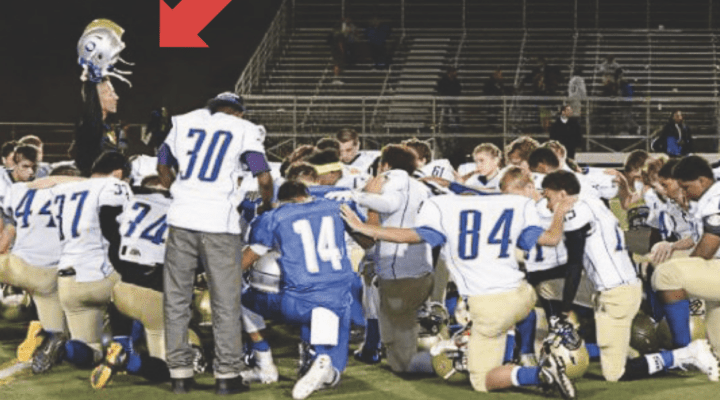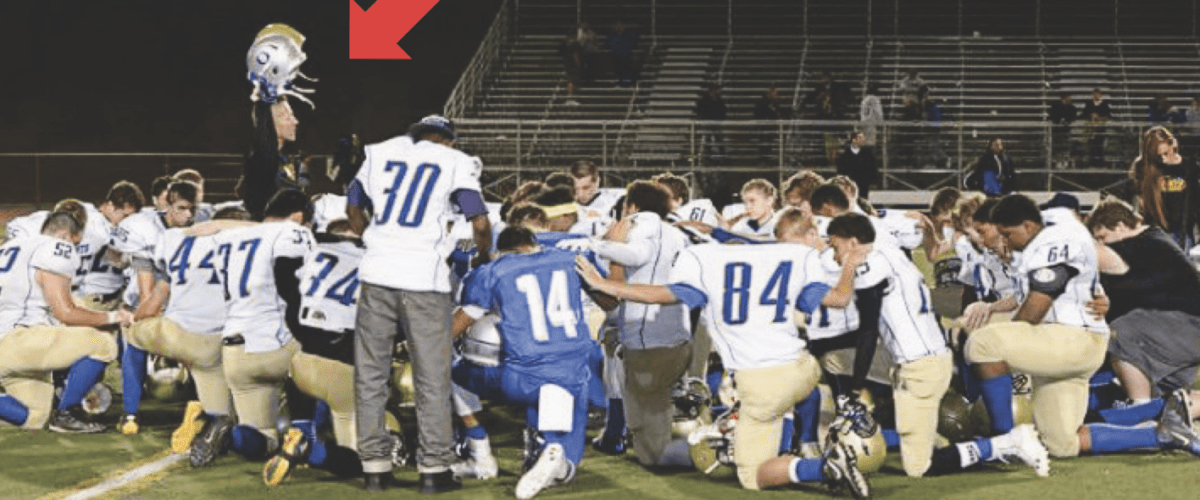A broad coalition including athletes, former NFL players, civil rights advocates, members of Congress and religious groups have filed amicus briefs with the U.S. Supreme Court in support of a Washington school district that placed a high school football coach on administrative leave in 2015 for leading post-game prayer sessions some students described as coercive.
Joseph Kennedy subsequently sued, claiming his religious liberty was violated by the Bremerton School District. But the players were the real victims, said Richard Katskee, legal director for Americans United for Separation of Church and State, which is representing the school district in the case.

Richard Katskee
“This isn’t government versus religion, this is: does the government protect the religious freedom of those it is serving? That’s the students and their families. Or does the employee get to substitute his own preferences and be able to impose that on the students?” Katskee said during an April 1 virtual press briefing held to announce the coalition supporting the district.
While Katskee described the issue “as easy a case as it could possibly be” when measured against decades of Constitutional precedent against school officials forcing religious beliefs on students, the Supreme Court nevertheless agreed in January to hear the case for the second time.
Up to this point, Kennedy v. Bremerton School District has been decided consistently in the school system’s favor and first reached the Supreme Court in 2019 on the coach’s appeal of lower-court rulings. But in denying that appeal, four conservative justices described the previous rulings as “troubling” and suggested the plaintiff’s claims “may justify review in the future.” The case was referred back to the lower courts to determine if a legitimate religious expression had resulted in the district’s action against Kennedy.
A 2021 ruling by the U.S. Court of Appeals for the 9th Circuit in San Francisco again found in favor of the district, leading to another appeal by Kennedy and, subsequently, to a spot on the Supreme Court docket. Justices are scheduled to hear arguments in the case April 25.
While the litigation has made Kennedy a hero of religious conservatives who see him as a champion of religious liberty, a growing number of individuals and organizations have been alarmed that his case has survived as long as it has and that some justices may be open to questioning the bedrock of Constitutional law that long has barred public officials, including teachers and coaches, from imposing their faith on students.
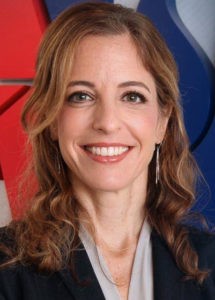
Rachel Laser
“Let me emphasize religious denominations and faith leaders from different backgrounds have announced their solidarity with us in this case,” Americans United President Rachel Laser said during the briefing. “So don’t believe the other side when they claim the school district is somehow against religion. Please also note that as far as we know the only Bremerton clergy who have weighed in with the court in this case are on the side of students’ religious freedom.”
Amicus briefs filed by these individuals and organizations, which include Christian, Jewish and Muslim groups, support the argument Katskee will be making before the high court, namely that students should not have to “pray to play” or otherwise participate in any school function, Laser said. “To allow that would erode a core principle of our democracy and radically depart from decades of established law.”
One of the groups filing friend-of-the-court briefs was Baptist Joint Committee for Religious Liberty. Its general counsel, Holly Hollman, said core Constitutional issues, including the First Amendment’s establishment clause, are at stake in Kennedy v. Bremerton School District.
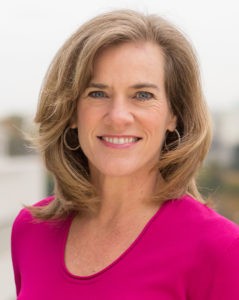
Holly Hollman
“For us this case is very significant because it has the potential to reaffirm or severely damage what has long been unquestioned, and that is that the constitutional protection of religious liberty in the public schools means that teachers, coaches and administrators do not lead students in religious exercises or otherwise use their government positions to advance or denigrate religion.”
The argument isn’t that religion is off limits to school employees, but that student religious freedom must never be threatened to receive an education or participate in sports or other extracurricular activities, she said. “It just means the government itself doesn’t take positions on religious matters or interfere with religious choices of students, and that means government employees acting in their official capacities.”
The brief filed by BJC notes that all three branches of the government have recognized a constitutional distinction between the speech of students and school officials, namely that teachers, coaches and administrators are not simply private citizens who happen to be on school grounds, Hollman said. “They are people of influence, power and authority; agents of the government acting and responsible for protecting the religious liberty of students.”
She added that case law going back to the 1960s has “made it very clear that the school itself should not be sponsoring religious exercises and interfering with the religious liberty of students.”
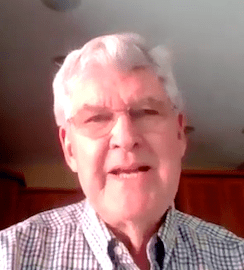 Former Pittsburgh Steelers punter Frank Lambert followed with a description of the coercive power coaches have over athletes and how fear of lost playing time could pressure them into following a coach’s religious practices.
Former Pittsburgh Steelers punter Frank Lambert followed with a description of the coercive power coaches have over athletes and how fear of lost playing time could pressure them into following a coach’s religious practices.
“The players are presented with a dilemma. One, if I do not participate, I risk demonstrating that perhaps I am not a team player. Or, if I go, I may be violating my own religious beliefs.”
Kennedy has asserted that his faith compels him to pray publicly after games. But that may run counter to some traditions that require prayers to be said privately, Lambert added. “Players and coaches pray all the time, before, during and after a game. The difference is, those are private prayers, prayers that are couched in whatever way and whatever belief that individual has. That’s a great distinction from praying in a meeting that is coerced by an authority figure.”
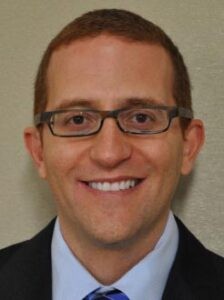
Dan Mach
Kennedy has cast himself as a victim in a case of religiously liberty, said Dan Mach, director of the program on freedom of religion and belief for the American Civil Liberties Union.
“It is indeed such a case,” he said. “But the victims are the public school students — his players — who were repeatedly placed in a position of either joining his midfield prayers or risk being cast as a team outsider.”
Mach noted that the school district gave Kennedy ample warnings and opportunities to say his prayers in a private settings, but he refused.
“The record here shows that multiple players did in fact feel pressure to join in the prayer circle against their will just to avoid falling out of favor with their coach. No high school athlete wants to jeopardize their playing time by getting on the wrong side of their coach.”
Related articles:

